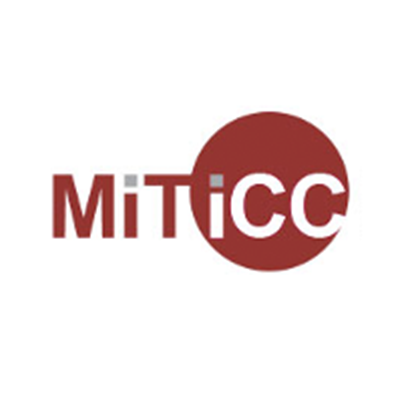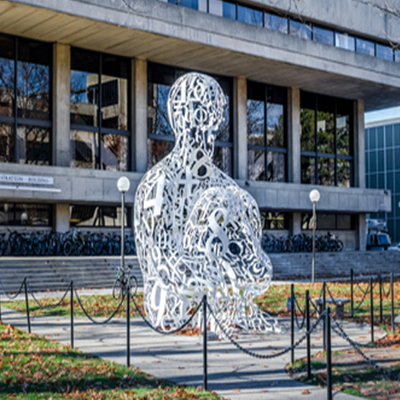What activities are subject to additional review?
- Projects funded by people or entities from China (including Hong Kong), Russia, and Saudi Arabia.
- Projects that involve MIT faculty, staff, or students conducting work in these countries.
- Collaborative projects with people or entities from these countries.
“Projects” refer here to engagements undertaken by members of the MIT community which are bound by formal MIT contractual relationships and agreements but not to informal or ad hoc interactions and collaborations. (For help and guidance on informal international collaborations involving these three countries, including how to navigate federal laws, regulations, and agency requirements bearing on such collaborations, please refer to the Informal International Collaboration (IIC) tool.)
The elevated risk review process described here also applies to gifts from China (including Hong Kong), Russia, and Saudi Arabia that are referred by MIT’s reconstituted Gift Acceptance Committee as part of their review and approval process.
Occasionally, projects not involving these three countries that are deemed by the International Coordinating Committee (ICC) to pose heightened risk to MIT may be subject to additional review. Also, faculty proposing global projects of a certain scope or complexity, even if not from one of these countries, may seek additional review through this process.
Please note that as international circumstances change, the list of countries or projects subject to additional review may be modified.
This elevated risk review process is separate from, and in addition to regular oversight and compliance reviews conducted for all international projects at MIT. Regarding the latter, the various offices that deal with legal, international and research matters work in consultation with one another on an ongoing basis to follow and ensure compliance with U.S. law and regulations.
How do I submit projects for review?
If you are considering a project in, related to, or funded by a person or entity from China, Russia, or Saudi Arabia, please start by following your regular process and work with the relevant department or office. For example, you would begin with Research Administration Services (RAS) or the Office of Strategic Alliances and Technology Transfer (OSATT) for sponsored research, and with Resource Development for a potential gift, and they would then initiate the review process on your behalf.
If your activity falls outside an established process or you are uncertain about how to proceed, please reach out to internationalhelp@mit.edu for assistance.
Decisions on how a project might need to be modified to address risk and/or whether it should ultimately proceed are made in consultation with the Principal Investigator (PI) and are based on the following input:
Compliance Review by the International Coordinating Committee (ICC)
- Your project will first be considered by the ICC, a group of experienced professional staff in key project areas such as finance, law, tax, export control, and operations. This stage of review requires a proposal and budget. The ICC will typically conduct due diligence on the sponsor/collaborator, sometimes with the assistance of third-party vendors.
- After reviewing the project and the sponsor/collaborator, the ICC will provide the PI or contract administrator with information and advice on anticipated risks and ways to reduce or avoid these, if needed. The PI will then decide whether to modify certain aspects of the proposed project in response. ICC representatives may also assist with the contract negotiations.
- The compliance review stage is an iterative process intended to increase a project’s viability and likelihood of approval. The ICC will recommend to the Vice Provost for International Activities either that the project should proceed or, if the residual risks after mitigation are significant, that it should be referred to the Senior Risk Group (SRG) for further review.
Academic Review by the International Advisory Committee (IAC)
- Based on the recommendation of the Vice Provost for International Activities in consultation with the IAC chair, a small number of projects coming through the ICC compliance review process are selected for review by the IAC. The IAC is a faculty-led, standing committee of the Institute that provides an independent faculty voice in advising the senior administration on the Institute’s major international engagements with significant implications for the Institute’s core mission. Its role in the elevated-risk review process is to help ensure that projects referred to it will effectively advance MIT’s core academic mission of education, research, and service.
Project Risk Review by the Senior Risk Group
- The SRG is comprised of the Vice Provost for International Activities, the Vice President for Research (VPR), and the Vice President and General Counsel, and it is supported by faculty and staff from the Office of the Vice Provost for International Activities, Office of General Counsel, VPR/Research Compliance, and the Office of the President, including the MIT Washington office.
- Projects referred to the SRG by the ICC are reviewed in consultation with the PI. For projects that have previously undergone IAC review, the IAC’s recommendations are a key part of the SRG review process.
- The reviews take into account the evaluations of potential project risks by the ICC and, as needed, with input from country and regional experts and other specialists at MIT and elsewhere. Occasionally ad hoc faculty committees may be convened for advice on particularly challenging issues. The SRG either approves the project with a risk management plan or decides that the project should not proceed.





